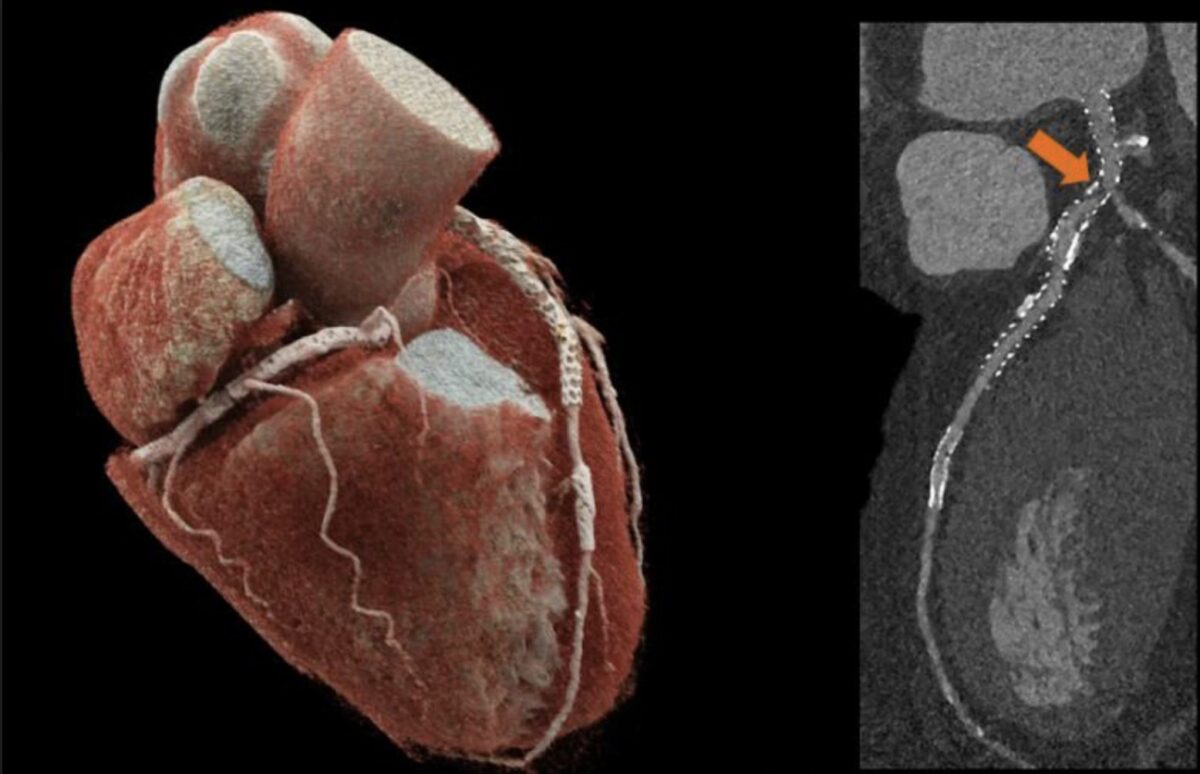Author: Dr Niels van Pelt
We are pleased to share some important practice points on investigation for chest pain syndromes with CT coronary angiography (CTCA). These points are drawn from clinical experience using CTCA since 2007 and research and guideline updates that have established CTCA as a first-line investigation for chest pain syndromes.
- CTCA has evolved to become an accepted and accessible investigation for chest pain. Technological advances have significantly reduced radiation exposure and improved image quality
- CTCA has the highest negative predictive value for any diagnostic test to rule out significant coronary artery disease- a normal CTCA conclusively rules out the presence of coronary artery disease
- CTCA has been considered the preferred investigation for chest pain in the outpatient setting by the UK NICE guidelines since 2016. The ACC/AHA 2021 Chest pain guidelines favoured CTCA over other non-invasive investigations in those under 65 years

- The SCOT HEART study in 2018 showed that patients who undergo a CTCA when investigated for chest pain have a 40% reduction in myocardial infarction or coronary heart disease-related death- why?
- CTCA improves outcomes by
- More appropriate use of secondary prevention particularly statins ( but also aspirin in high-risk patients)
- More coronary revascularisation and less normal invasive coronary angiograms mean that the right people are being referred to the cardiac catheter laboratory
- Improved risk stratification particularly in women- patients who have mild coronary plaque have different outcomes to those with no coronary plaque and may warrant risk factor modification (in other words many patients with normal exercise stress tests have significant undetected coronary plaque burden)
- CTCA can safely and effectively assess patients admitted to hospital with chest pain syndromes
- CT scans performed in NZ between 2015-2019 increased by 30%. The biggest driver is cardiology and trauma scans
- Photon counting CT is a new technique that will further improve CTCA with increased image quality and diagnostic accuracy

At Ascot Cardiology Group, we use the Siemens Drive CT scanner (installed in mid-2023) for CTCA which is a dual-source scanner designed specifically for cardiac CT. This is arguably the best cardiac CT scanner available in private practice in Auckland.
Should you wish to discuss CTCA further or have any questions, please do not hesitate to contact the Ascot Cardiology Group. We are here to support you and your patients in managing chest pain syndromes.